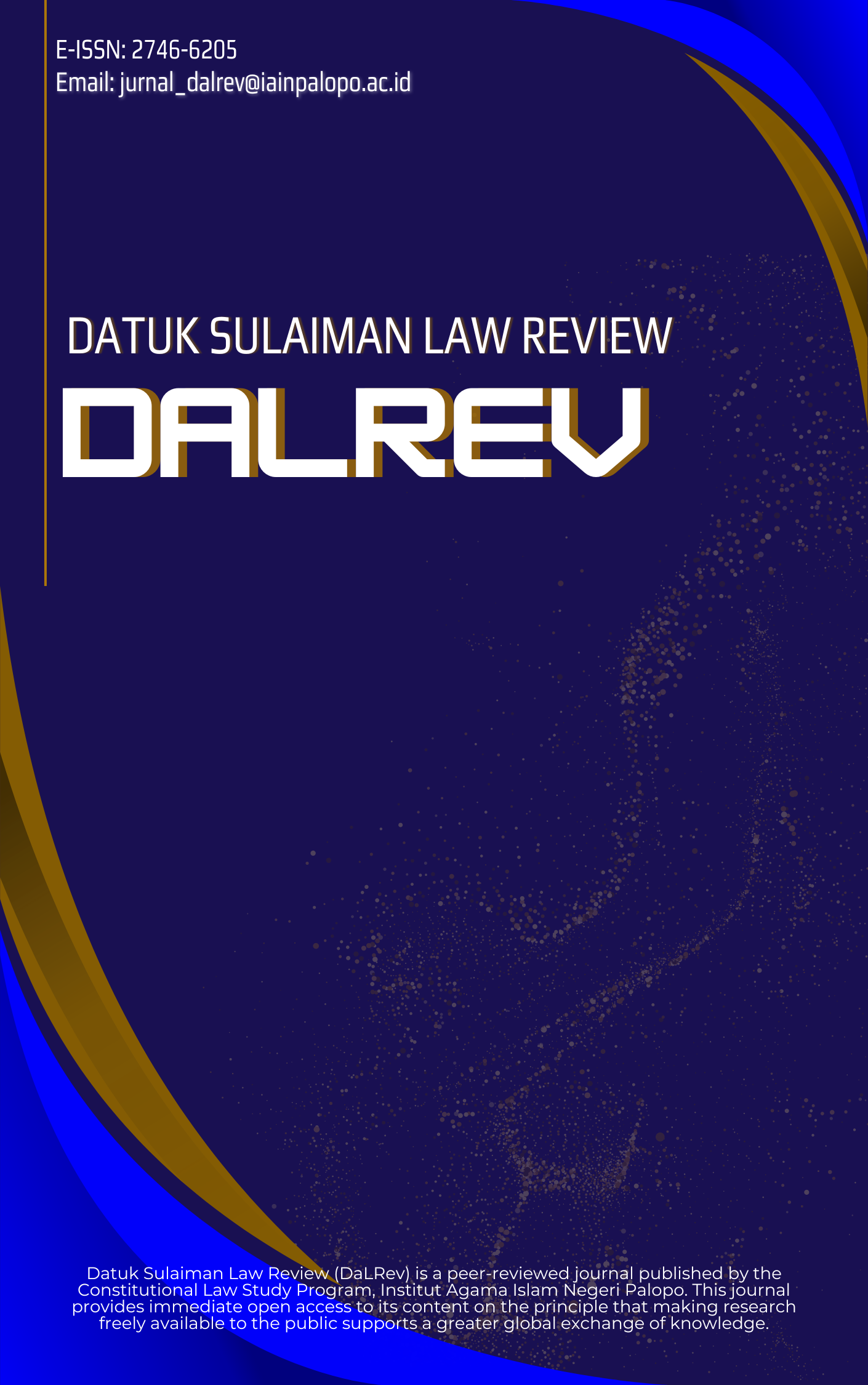ANALISIS PUTUSAN TERHADAP TINDAK PIDANA PEMALSUAN SURAT KETERANGAN SAHNYA HASIL HUTAN KAYU DI KABUPATEN SIDENRENG RAPPANG (Studi Kasus Putusan No.58/Pid.B/LH/2022/PN Sdr)
DOI:
https://doi.org/10.24256/dalrev.v5i2.6471Abstrak
This study aims to describe the verdict on the crime of forging the certificate of legality of timber forest products in Sidenreng Rappang district, with a research method with a normative-empirical approach by conducting normative case analysis and interviews, as for the research results; 1). The impact of the Crime of Forgery of Certificates of Legality of Timber Forest Products is the occurrence of deforestation, the destruction of this Forest Ecosystem, then climate change and global warming will be more severe, Economic Losses on Regional Income, Providing a Deterrent Effect on Perpetrators. while Factors influence a person to commit the crime of forging the Certificate of Legality of Timber Forest Products, namely; Financial Advantages and Weak Law Enforcement Supervision.
Unduhan
Diterbitkan
Cara Mengutip
Terbitan
Bagian
Citation Check
Lisensi
Hak Cipta (c) 2024 Ardhi Arya Saputra A.R, Yudri Asli Abu

Artikel ini berlisensiCreative Commons Attribution-ShareAlike 4.0 International License.
Authors retain copyright and grant the journal right of first publication with the work simultaneously licensed under an Attribution-ShareAlike 4.0 International (CC BY-SA 4.0) (https://creativecommons.org/licenses/by-sa/4.0/) that allows others to share the work with an acknowledgement of the work's authorship and initial publication in this journal.
Authors are able to enter into separate, additional contractual arrangements for the non-exclusive distribution of the journal's published version of the work (e.g., post it to an institutional repository or publish it in a book), with an acknowledgement of its initial publication in this journal.
Authors are permitted and encouraged to post their work online (e.g., in institutional repositories or on their website) prior to and during the submission process, as it can lead to productive exchanges, as well as earlier and greater citation of published work (See the Effect of Open Access)














